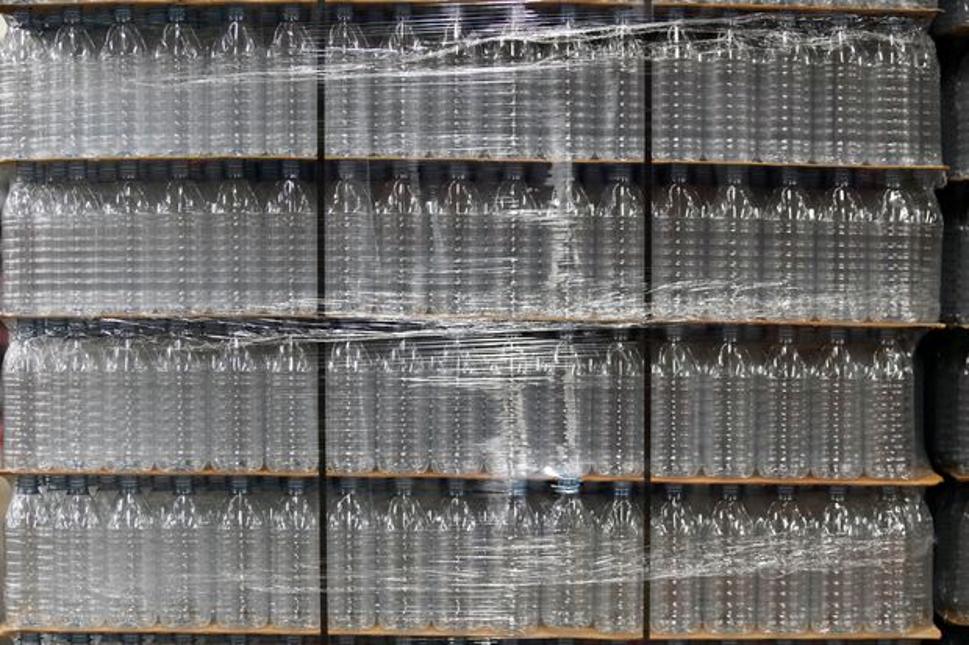
Empty plastic bottles sit on pallets at the Swire Coke bottling plant in West Valley City, Utah, earlier this year. Coke is counting on chemical recycling to meet its promise of using at least 50% recycled content in its packaging by 2030. PHOTO: GEORGE FREY/BLOOMBERG NEWS Source: The Wall Street Journal
Big makers and users of plastic packaging are betting on a recycling technology that has failed for decades to take off, as a public backlash and new rules push them to find ways to cut waste and greenhouse-gas emissions tied to plastic.
Plastic makers like BP PLC and Dow Inc., and packaging users like Coca-Cola Co., Danone SA and Unilever PLC, are testing or investing tens of millions of dollars in the technology, called chemical recycling. The process uses chemicals or heat to break down plastic so it can be turned into clean, new plastic again and again while preserving quality—a Holy Grail for the industry.
That is a big improvement on existing, mechanical recycling—in which plastic is shredded, washed and melted—where quality diminishes over time. Material processed this way can only be recycled a few times, mostly into lower-quality products, before eventually going to landfills or incinerators.
“We see chemical recycling as a game changer,” BP Chief Executive Robert Dudley told investors earlier this year. The energy giant, which makes a key ingredient of plastic, plans to open a $25 million pilot plant in Illinois next year to demonstrate its technology.
Chemical recycling has been around since the 1950s, but high costs and a lack of demand made it financially unviable. Companies are turning to it now, partly because of the need to find more recycled material to meet or forestall regulations aiming to cut emissions and waste. Beverage companies are especially under pressure, following a European Union directive for plastic bottles to use 30% recycled plastic starting in 2030. The U.K. plans to start taxing plastic packaging containing less than 30% recycled content in 2022.
Various recycling technologies are competing for investment, but all face hurdles. Some can only handle PET, the plastic ubiquitous in water and soda bottles. The environmental impacts of many technologies are still unclear, while getting a steady supply of material to recycle presents a big challenge.
Investors say chemical recycling could improve overall recycling rates because it can handle plastic that traditional methods can’t, like black food trays, colored shampoo bottles, sticky ketchup bottles and polyester clothing and carpets. Only 9% of plastic waste produced so far has been recycled, according to a 2017 study from the journal Science Advances. Much of this is due to poor collection and sorting, but partly it is because mechanical recycling hasn’t kept up with new varieties of plastic packaging.
“There hadn’t been the public-policy push and pressure to increase recycling rates, not like what there is today,” said Tim Boven, who works on increasing recycled content in Dow’s plastic packaging. “The situation isn’t terribly different to the journey we have been on with renewable energy.” Dow has a supply agreement with Fuenix Ecogy Group, a Dutch startup that uses heat to crack the polymers in plastic.
Coca-Cola is also counting on chemical recycling to meet its promise of using at least 50% recycled content in its packaging by 2030, up from 30% today. “We need it 100% to work,” said Scott Pearson, the beverage giant’s head of R&D engineering. “Mechanical recycling isn’t going to get us there by itself.”
Coca-Cola is advising Swiss startup gr3n, which uses microwave radiation to speed up the process of breaking down PET. It has also invested in Ioniqa Technologies, which submerges PET in a solution to dissolve the molecular structure. Unilever has also funded Ioniqa—which opened a plant this summer—and tested its plastic in Hellmann’s mayonnaise bottles.
Evian-maker Danone SA and PepsiCo Inc. have supply deals with Loop Industries Inc., a Canadian startup whose technology reverse-engineers PET plastic to its original building blocks.
“At the moment we are concerned because we are all behind the curve on this issue, so we need to catch up,” said Roberto Vanin, R&D chief at Suntory Beverage and Food Europe. The Orangina owner is helping fund Carbios, a French company that uses enzymes to break down plastic. Nestlé SA, PepsiCo and L’Oréal SA are also involved.
Some chemical recycling technologies are geared toward tackling the plastic ubiquitous in products like microwave-meal containers, bubble wrap and laundry-detergent bottles, or dealing with films and mixed plastics.
The tougher bonds in such plastic require temperatures as high as 1,832 degrees Fahrenheit in the absence of oxygen to break down. That yields an oil that can be turned into new plastic. Unilever recently launched a line of Magnum ice cream sold in tubs made from low-quality, mixed plastic recycled using such technology.
However, heat-driven processes are highly energy-intensive, according to recycling-industry consultant Axion Ltd., which adds that the overall impact of chemical recycling on the environment isn’t yet well-defined.
And not everyone thinks chemical recycling will take off.
“Every three to five years I hear the chemical recycling of plastics is now available but nobody is operating a commercially viable, scaled facility,” said Richard Kirkman, chief technology and innovation officer for the U.K. arm of Veolia Environment SA . The waste-management company has been investing in improving collection and sorting for its existing recycling facilities. “It’s a potential answer whereas mechanical recycling is an actual answer.”
Source: The Wall Street Journal, December 8,2019 | Saabira Chaudhuri